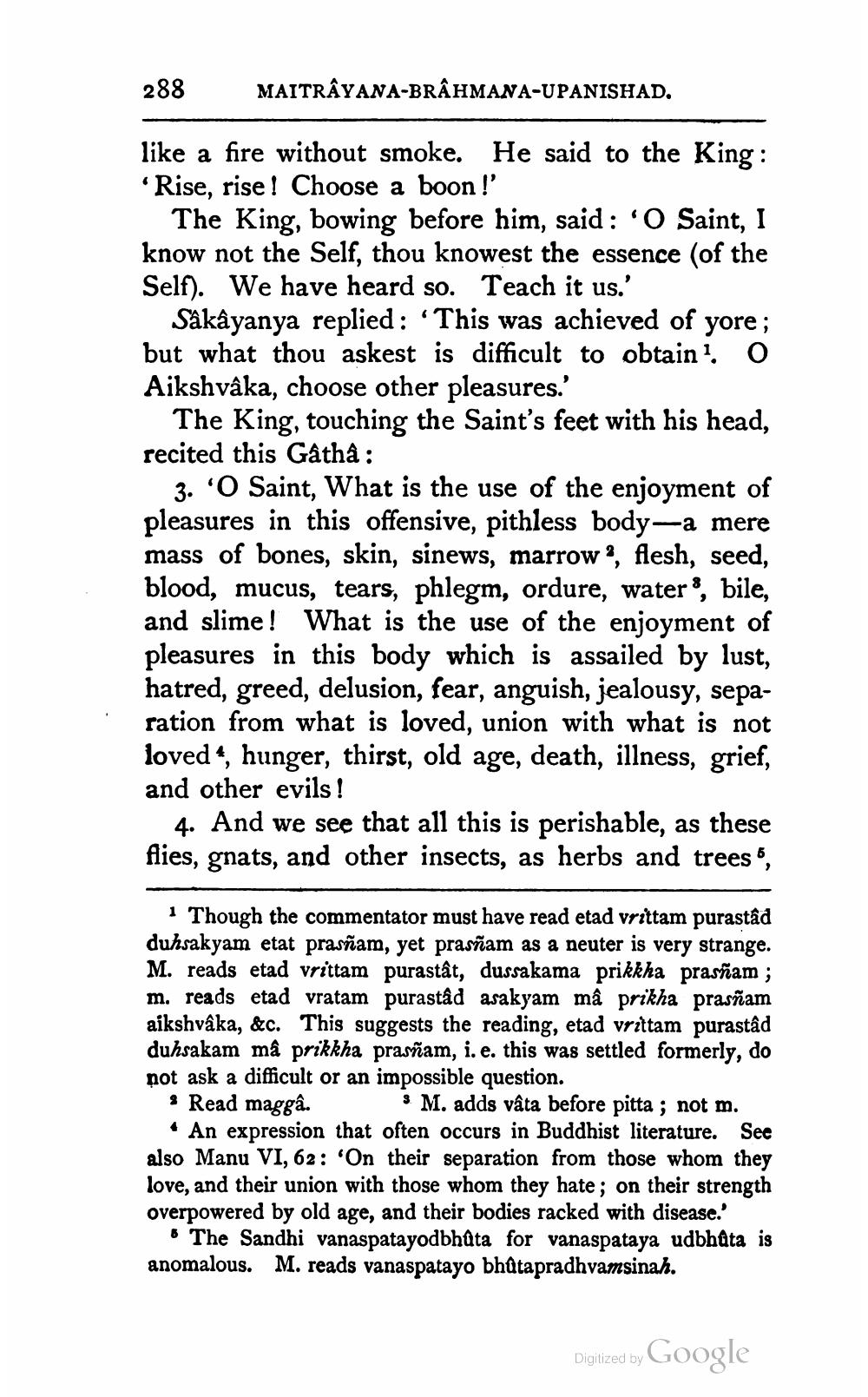________________
288
MAITRÂVANA-BRAHMANA-UPANISHAD.
like a fire without smoke. He said to the King : Rise, rise! Choose a boon !'
The King, bowing before him, said: 'O Saint, I know not the Self, thou knowest the essence (of the Self). We have heard so. Teach it us.'
Sâkâyanya replied: “This was achieved of yore; but what thou askest is difficult to obtain?. O Aikshvâka, choose other pleasures.'
The King, touching the Saint's feet with his head, recited this Gâthâ:
3. 'O Saint, What is the use of the enjoyment of pleasures in this offensive, pithless body-a mere mass of bones, skin, sinews, marrow”, flesh, seed, blood, mucus, tears, phlegm, ordure, water, bile, and slime! What is the use of the enjoyment of pleasures in this body which is assailed by lust, hatred, greed, delusion, fear, anguish, jealousy, separation from what is loved, union with what is not loved“, hunger, thirst, old age, death, illness, grief, and other evils !
4. And we see that all this is perishable, as these flies, gnats, and other insects, as herbs and trees 5,
1 Though the commentator must have read etad vrittam purastad duhsakyam etat prasñam, yet prasñam as a neuter is very strange. M. reads etad vrittam purastât, dussakama prikkha prasñam; m. reads etad vratam purastâd asakyam mâ prikha prasñam aikshvâka, &c. This suggests the reading, etad vrittam purastad duhsakam mâ prikkha prasam, i.e. this was settled formerly, do not ask a difficult or an impossible question. * Read maggâ.
M. adds vâta before pitta ; not m. • An expression that often occurs in Buddhist literature. See also Manu VI, 62: 'On their separation from those whom they love, and their union with those whom they hate; on their strength overpowered by old age, and their bodies racked with disease.'
* The Sandhi vanaspatayodbhůta for vanaspataya udbhůta is anomalous. M. reads vanaspatayo bhůtapradhvamsinah.
Digitized by Google




